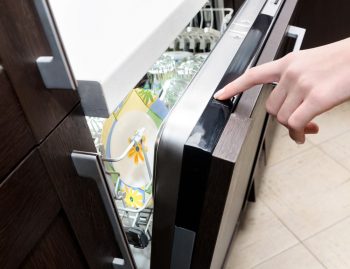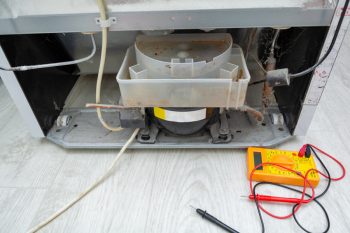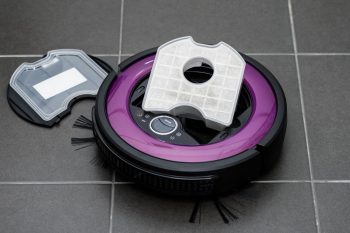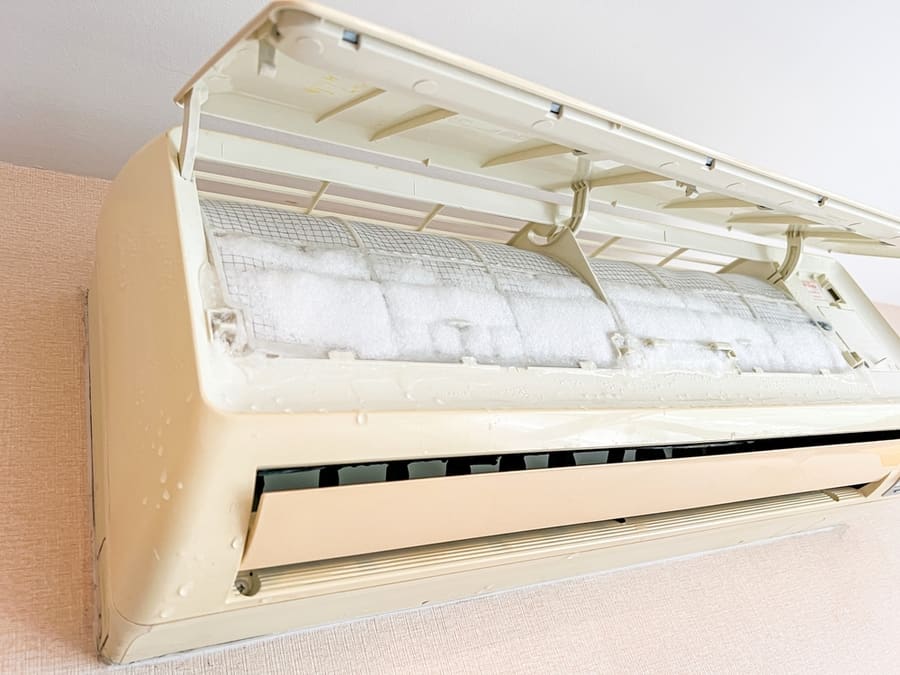
Summertime is a season of sunshine, warm weather, and, unfortunately, occasional AC problems. As the temperature rises, it’s common for your air conditioning unit to freeze up and stop working.
This can be a frustrating and uncomfortable experience, especially if you’re in the middle of a heatwave. A frozen AC unit can happen for various reasons, including low refrigerant levels, a clogged air filter, or even a malfunctioning thermostat.
Fortunately, with a few simple steps, you can quickly and easily unfreeze your AC unit and get it back to keeping your home cool and comfortable.
An AC unit can freeze due to several reasons, but the most common ones are:
- Low Refrigerant Levels: Refrigerant is the substance in your AC unit that cools the air. If the refrigerant levels are too low, the pressure in the AC unit drops, and the evaporator coils can freeze.
- Dirty Air Filters: Clogged air filters restrict the airflow to the evaporator coils, which can cause them to freeze. It’s important to clean or replace the air filters regularly to prevent this from happening.
- Blocked Air Ducts: Blocked air ducts can also restrict airflow to the evaporator coils, causing them to freeze. It’s important to have your air ducts cleaned regularly to prevent this from happening.
- Thermostat Issues: If the thermostat is not functioning properly, it may not turn off the compressor when the desired temperature is reached, causing the evaporator coils to become too cold and freeze.
- Fan Problems: The fan helps to circulate the air over the coils, so if it’s not functioning correctly, the coils can freeze.
- Blocked Condensate drain: When the drain that removes the condensation from the AC unit is blocked, the moisture can freeze and cause the unit to freeze.
By identifying the root cause of the problem, you can take the appropriate steps to unfreeze your AC unit and prevent it from happening again.
In this guide, we’ll walk you through the process of unfreezing your AC unit, step-by-step, so that you can beat the heat quickly.
We will also discuss the signs of a frozen AC unit and what happens if you continue to run it.
Quick and Easy Steps To Unfreeze Your AC Unit
Fueling your AC unit can be a worrying experience, but you can unfreeze it quickly with the right steps and patience.
Here’s a step-by-step guide on how to unfreeze your AC unit:
Step #1: Turn Off the AC Unit
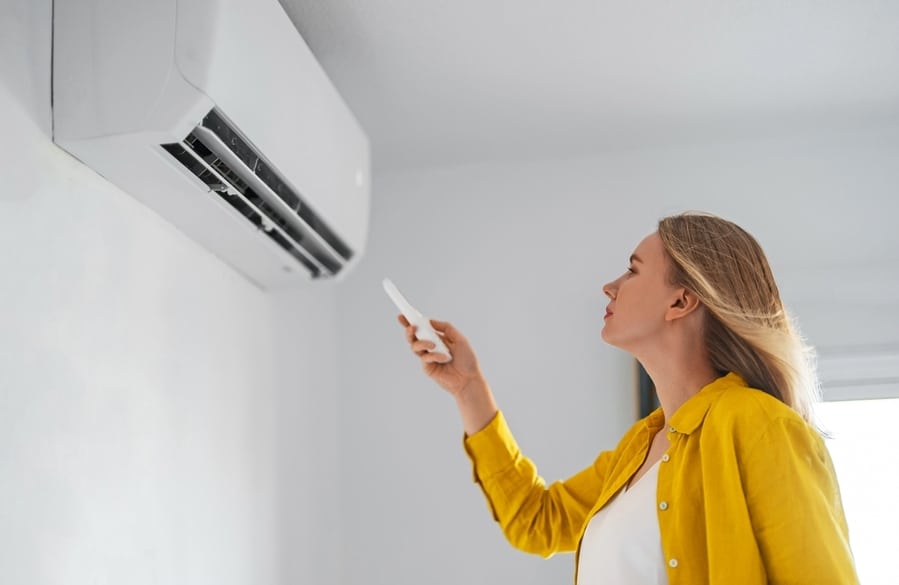
The first and most important step is to turn off the AC unit to prevent further damage. If the AC unit continues to run while frozen, it can damage the compressor, which can be expensive to repair or replace.
Step #2: Let the Unit Thaw Out
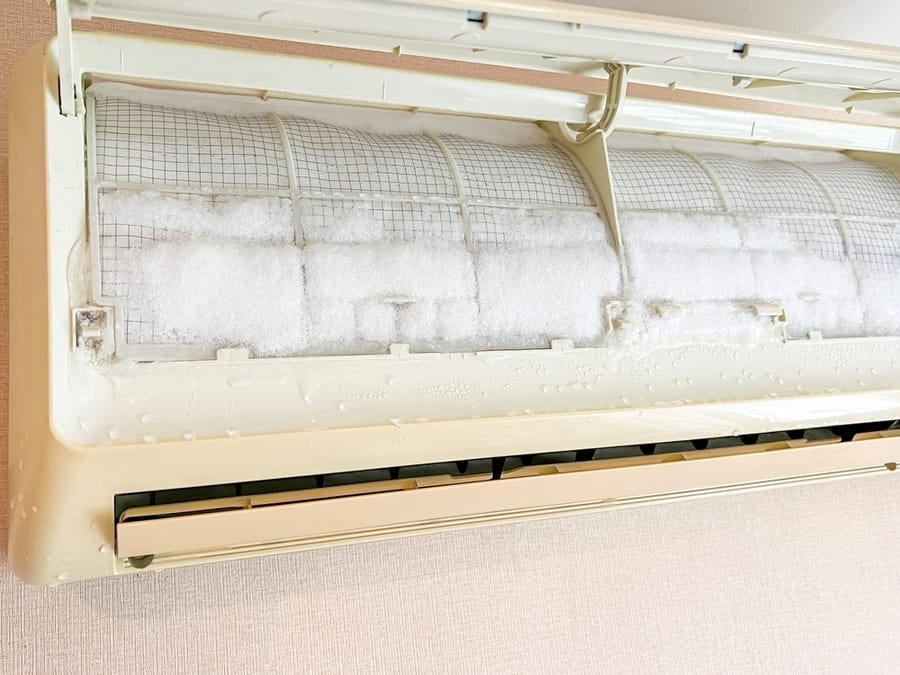
Once you have turned off the AC unit, waiting for it to thaw out completely is important.
This can take several hours, depending on the extent of the freezing. You can speed up the process by turning on the AC and setting the thermostat to “fan only” mode.
Step #3: Identify the Cause of Freezing
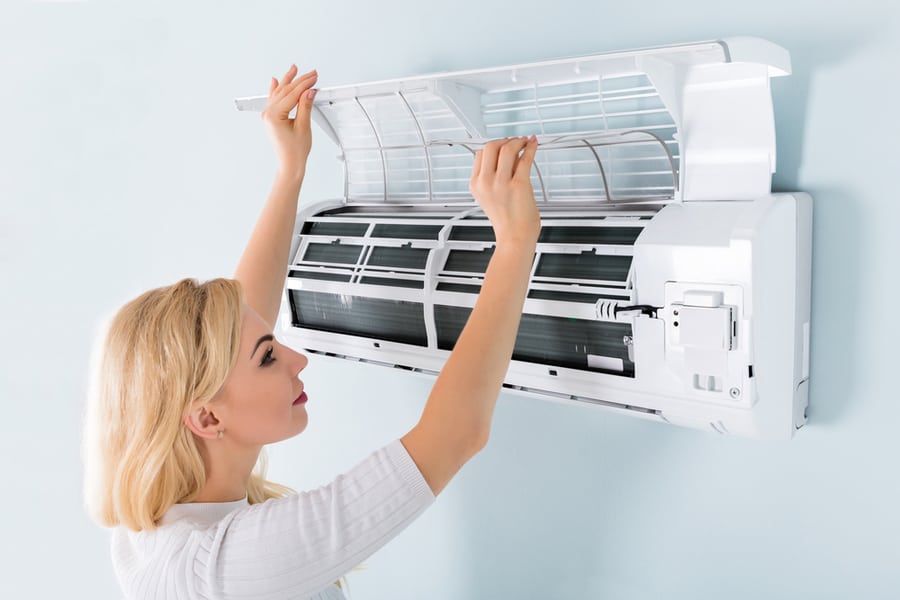
After the unit has thawed out, the next step is identifying the freezing cause. Next, check the air filters, air ducts, thermostat, and fan to see any obstructions or issues.
If you find any problems, address them before turning the AC unit back on.
Step #4: Clean or Replace Air Filters
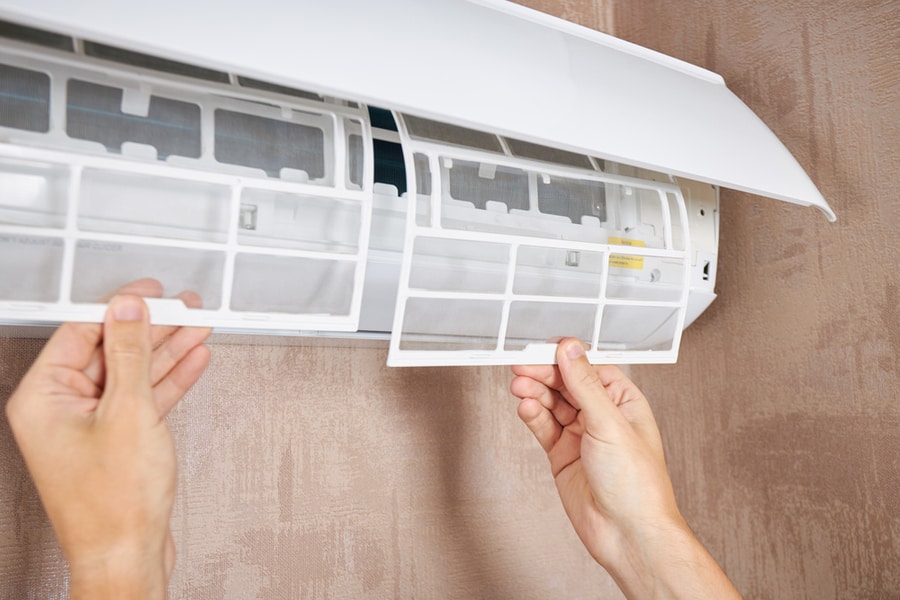
If the air filters are dirty or clogged, clean or replace them. Clogged air filters restrict airflow to the evaporator coils, causing them to freeze.
This is a common cause of freezing, so cleaning or replacing the air filters regularly is important.
Step #5: Check the Refrigerant Levels
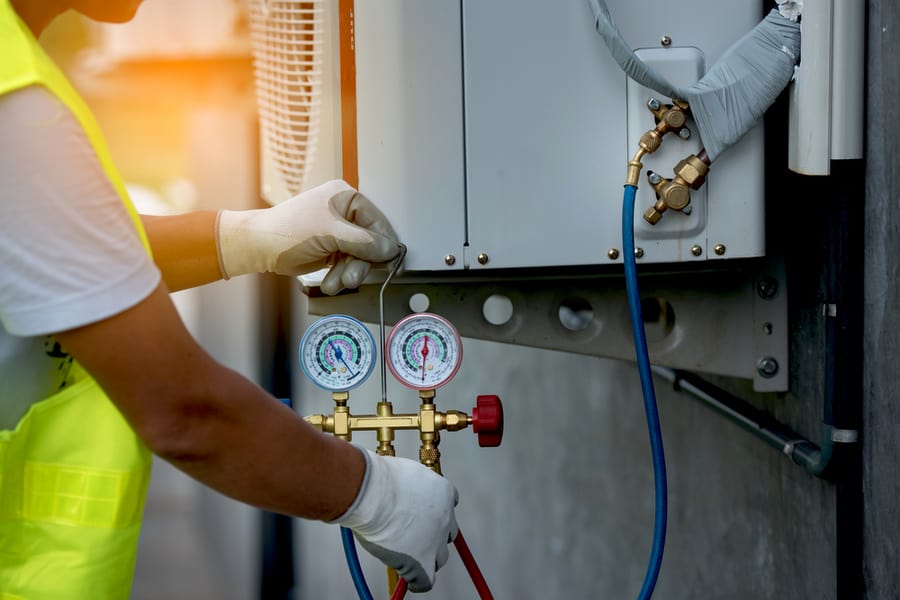
Check the refrigerant levels, as low ones can cause the evaporator coils to freeze. If you suspect that the refrigerant levels are low, you’ll need to call a professional HVAC technician to recharge the system.
Step #6: Restart the AC Unit
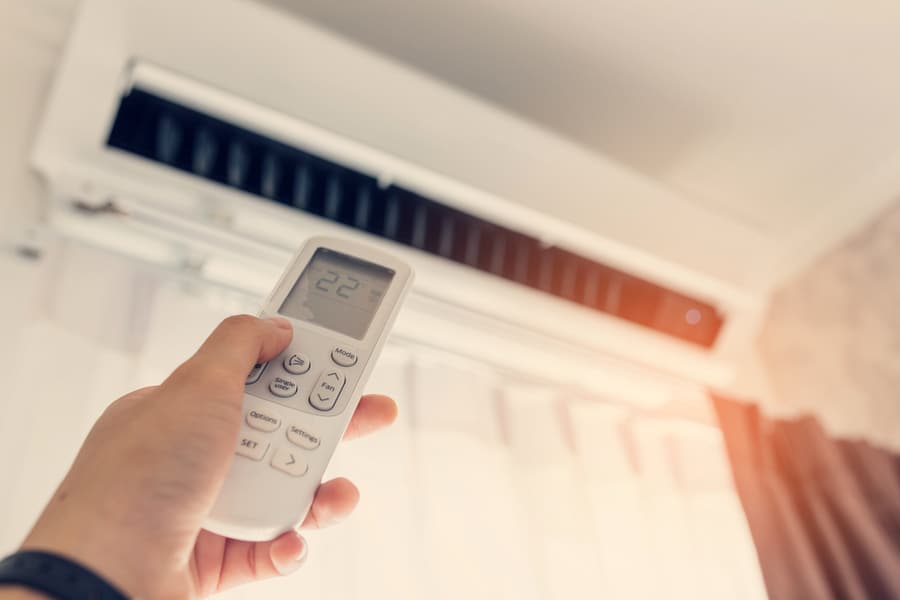
Finally, you can restart the AC unit once you’ve checked for obstruction, thawed the unit completely, replaced or cleaned the air filters, and checked the refrigerant levels. Then, turn the thermostat to the desired temperature, and the AC unit will blow cold air again.
Following these simple steps, you can unfreeze your AC unit and keep your home cool and comfortable. If you’re uncomfortable performing these steps yourself, or if the problem persists, it’s better to call a professional HVAC technician for help.
Regular AC unit maintenance can help prevent these issues and keep the unit running smoothly.
It’s also important to have a professional technician inspect and service the unit annually to catch any potential problems before they cause serious damage.
How Long Does It Take To Unfreeze an AC Unit?

The time it takes to unfreeze an AC unit can vary depending on the severity of the freeze and the cause of the issue. Generally, it can take a few hours to a full day to thaw out an AC unit that has frozen up.
If the cause of the freeze was poor airflow or a dirty air filter, simply turning off the unit and allowing it to defrost naturally may be sufficient, and it could take a few hours for the ice to melt completely.
However, if the cause of the freeze was low refrigerant levels or a malfunctioning part, it may take longer to resolve the issue and restore the unit to proper functioning.
Heat sources like a hairdryer can speed up thawing out an AC unit that has frozen up. This method can help melt the ice faster, allowing the unit to start functioning normally sooner.
However, it’s important to use caution when applying heat to the unit, as excessive heat can damage the components and create a safety hazard.
It is recommended to use a hair dryer on the lowest heat setting and hold it 10-12 inches away from the unit.
Alternatively, you can use a warm, damp towel or hot water to thaw the unit gently. It’s important to avoid boiling water, as it can cause the metal parts to warp or crack.
What Happens if I Run a Frozen AC Unit?
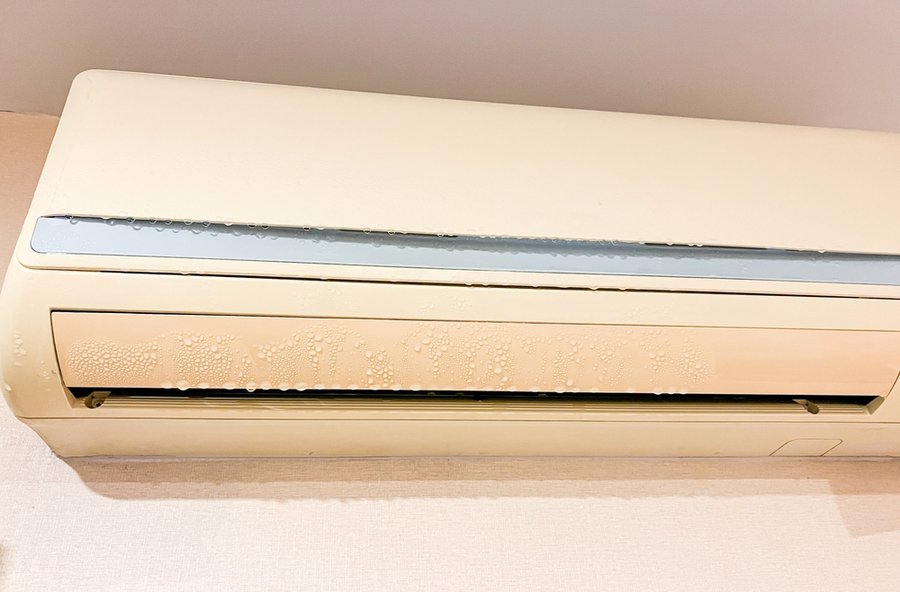
If you continue to run a frozen AC unit, it can cause several problems, including:
- Reduced Efficiency: The ice buildup on the coils can prevent the refrigerant from absorbing heat and cooling the air. This can cause the unit to work harder to achieve the desired temperature, reducing efficiency and energy costs.
- Increased Wear and Tear: Operating a frozen AC unit can put additional strain on the components, causing them to wear out more quickly. This can lead to more frequent breakdowns and costly repairs.
- Compressor Damage: If the ice buildup is severe, it can cause damage to the compressor, which is a critical component of the AC system. This can result in a complete system failure and require costly repairs or even a system replacement.
- Safety Hazards: If the ice buildup is severe, it can cause the coils to crack or warp, creating a safety hazard. If the refrigerant leaks, it can cause health problems and environmental damage.
Conclusion
Frozen AC units are common due to poor airflow, low refrigerant levels, or other issues. Signs of a frozen AC unit include limited airflow, warm air, strange noises, and ice buildup on the unit.
If you suspect your AC unit is frozen, it’s important to turn it off immediately and allow it to thaw out completely before turning it back on. Running a frozen AC unit can cause reduced efficiency, increased wear and tear, compressor damage, and safety hazards.
To prevent your AC unit from freezing up again, it’s best to have it inspected by a professional technician who can diagnose and repair any underlying issues.
Regular maintenance, such as cleaning or replacing air filters, can help prevent a frozen AC unit and keep your system running smoothly.
We hope this article has provided you with useful information to help you keep your air conditioner from freezing.
Frequently Asked Questions
How Can I Determine if My AC Unit Is Frozen?
There are a few common signs that your unit may be frozen, including:
- Limited Airflow: If you notice that the air coming out of your AC vents is weak or limited, it could be a sign that the unit is frozen. The ice buildup can block the airflow and restrict the amount of cool air that can pass through.
- Strange Noises: A frozen unit can sometimes make unusual noises, such as a hissing or bubbling sound. This is caused by the refrigerant flowing through the frozen coils and can indicate a problem with the unit.
- Warm Air: If the air from your AC vents is warm instead of cool, it could indicate that the unit is frozen. The ice can prevent the refrigerant from absorbing heat and cooling the air.
- Ice Buildup: If you see ice buildup on the outside of the AC unit, it indicates that the AC is frozen. The ice may appear as a layer of frost outside the unit or visible ice on the coils.


